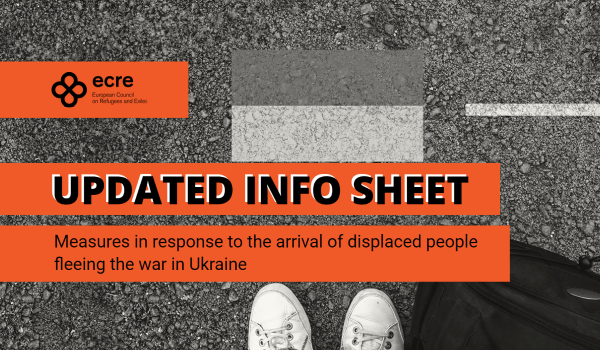ECRE has regularly published its non-exhaustive information sheet on the implementation of the Temporary Protection Directive (TPD) and national equivalents, as invoked in response to the displacement of people from Ukraine. Following the extension of the TPD regime in October 2022, the EU Member States are in the process of defining the rules on prolongation of temporary protection status at the national level.
The current edition of the Information Sheet covers the main updates on TPD implementation as of January 2023. In addition to questions regarding the scope of the TPD, reception, free movement and access to rights, this edition also covers the information on the extension of the TP status, updated rules on re-entry, the situation of access to accommodation, and the implementation of provisions on social support.
While a number of states decided to automatically prolong the TP status (e.g. Austria, Finland, Norway, and Slovakia), others require personal presence at local administrations (e.g. France), or requiring that request for prolongation be filed online (e.g. Sweden and Czechia). Some states have decided to issue residence permits valid for more than a year (such as Latvia), while Poland has extended the temporary protection status only until 24 August 2023 at this point.
Different practices have continued in relation to third-country nationals (TCNs). For example, the Information Sheet shows that the Netherlands decided not to extend the temporary protection status to TCNs who resided in Ukraine on a temporary basis. Thus, the Dutch authorities have crossed the Netherlands off the list of countries broadening the scope of TPD application. This means that after 3 March 2023, TCNs in this category will have to either apply for international protection in the Netherlands or return to the country of origin.
The Information Sheet also covers developments in relation to people registered in other Member States. January 2023 brought new changes to the Polish Law on assistance to citizens of Ukraine which limit the possibility for those benefiting from temporary protection in other EU Member States to apply for temporary protection in Poland. Similar practice has already been established in Czechia, which rejects the application of a person who has applied for temporary protection in another Member State.
In a similar move, both Poland and Czechia have introduced amendments that will limit the period of free residence in accommodation centres and introduce payment for longer stay (starting from 120 days in Poland and150 days in Czech Republic).
The Information Sheet also confirms that a lack of clarity on re-entry rules continues to be an issue. For example, according to the PRAB initiative report, in the period of March to December 2022, a total of 12,899 Ukrainian nationals were refused entry at the Polish border for different reasons. Good and bad practice on re-entry is identified across the countries studied in the Information Sheet.
This article appeared in the ECRE Weekly Bulletin. You can subscribe to the Weekly Bulletin here.

